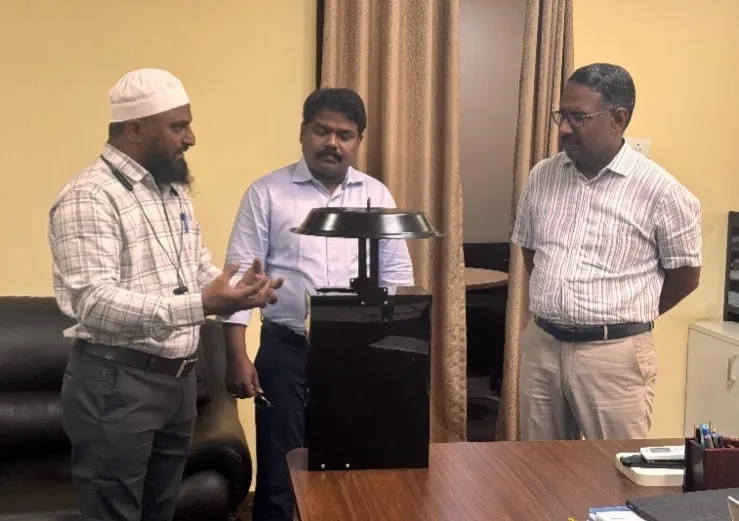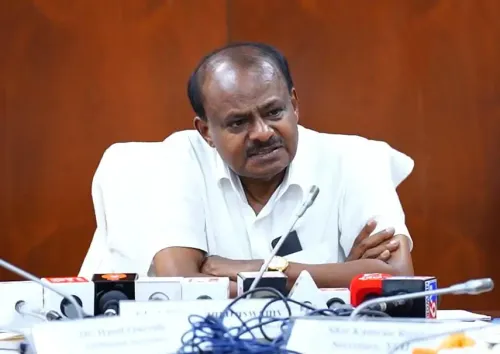Is Andhra Pradesh Launching an AI-Driven Mosquito Control Programme?

Synopsis
Key Takeaways
- AI-powered technology aims to enhance mosquito control.
- The initiative is expected to reduce costs for Urban Local Bodies.
- Real-time data monitoring will improve public health responses.
- Community engagement is key through mobile complaint tracking.
- Special action plans for mosquito hotspots are being established.
Amaravati, July 6 (NationPress) The Municipal Administration and Urban Development Department of Andhra Pradesh is set to unveil a comprehensive "smart mosquito control" initiative leveraging advanced technology to combat vector-borne diseases.
The Artificial Intelligence-driven Smart Mosquito Surveillance System (SMoSS) will kick off with a pilot project across 66 sites in six major municipal corporations within the state, as per the department's announcement on Sunday.
SMoSS aims to protect public health by mitigating the widespread mosquito problem, while also alleviating the operational load on civic personnel and reducing expenses for Urban Local Bodies.
The program will incorporate close monitoring utilizing Internet-of-Things technologies such as drones, sensors, heat maps, and traps.
The pilot will commence at 16 locations in the Greater Visakhapatnam Municipal Corporation, four in Kakinada, five in Rajamahendravaram, 28 in Vijayawada, seven in Nellore, and six in Kurnool.
The Principal Secretary of MAUD, S. Suresh Kumar, and the Director of Municipal Administration, P. Sampath Kumar, recently evaluated the AI-driven SMoSS, developed by a private firm, to measure its effectiveness.
AI-enabled smart mosquito sensors will be deployed in crucial mosquito-prone areas within the selected urban local bodies as part of this pilot scheme.
These intelligent sensors will identify mosquito species, gender, density, temperature, and humidity. SMoSS will send automated alerts when mosquito density surpasses a designated threshold in a specific area. The resulting data will be continuously transmitted to a central server and displayed on a real-time dashboard.
"This will facilitate meticulous monitoring and ensure timely fumigation in affected regions through a data-driven strategy for effective mosquito control, moving away from the current 'blind spraying' method that shows minimal results. The IoT sensors will track mosquito density and direct targeted interventions," stated an official.
The utilization of drones for larvicide spraying will lead to a more efficient application, effectively covering larger areas using less chemical, time, and financial resources.
Key components of the entire operation include evidence-based spraying, avoidance of chemical overuse, and the promotion of public health safety.
"We intend to fully outsource the operations to specialized agencies, with remuneration based on results and defined operational accountability. Any complaints from citizens and field personnel will be tracked via mobile applications (Vector Control and Puramitra)," they elaborated.
A reporting system is also being established to monitor daily cases of malaria, dengue, and chikungunya from hospitals. This data will be pivotal in identifying mosquito hotspots for targeted action.
Officials confirmed that special action plans for scheduled fogging and larval treatment in hotspots are being developed.









